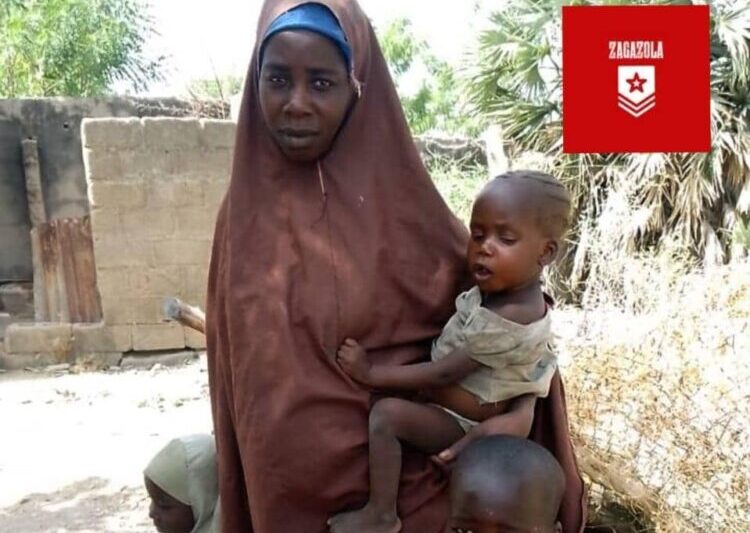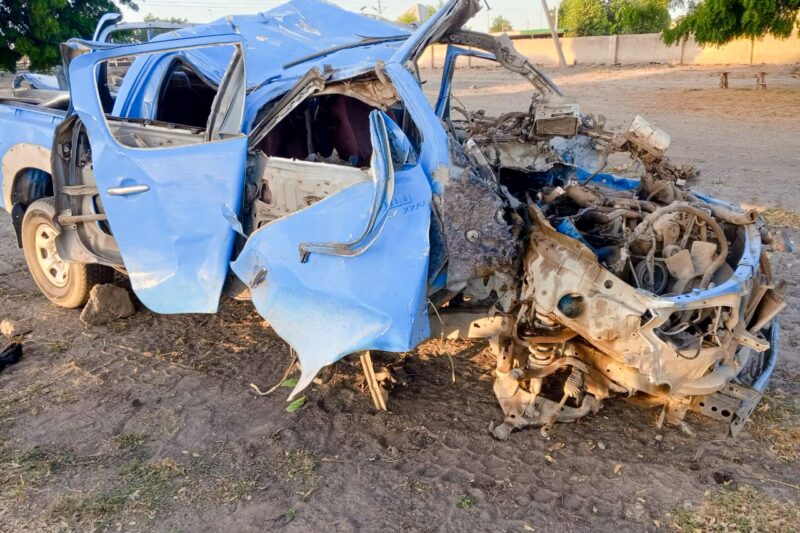The cholera outbreak in Nigeria is taking its toll – especially among internally displaced persons and those in some host communities in Maiduguri, Borno State.
The lack of proper hygiene has been blamed for the outbreak. The waterborne disease spreads if food and, in particular, water become contaminated with the stools of an infected person. Safe and protected water sources and proper sanitation facilities are critical to prevent it from spreading.
Internally displaced persons’ camps are particularly at risk because they are overcrowded and most have a shortage of sanitation and hygiene facilities.
Fatima Muhammed, an internally displaced person living in a camp in Maiduguri, said even though she knew how to prevent the disease, it was difficult to maintain personal and environmental hygiene because they did not have the means.
“We struggle to put food on our table and we sometimes sleep with empty bellies. This is more important to us that trying to practise good hygiene. As you can see I have so many dirty clothes and I wash my dishes every second day unlike before when I washed them daily.”
Muhammed said she knew that leaving dishes unwashed could cause of cholera. “The issue is beyond our control because we suffer from water scarcity, which is exacerbated by Maiduguri’s total blackout.”
She said she did not have soap, detergents and water. “We now wash our latrines once a week. In the past, we washed them every day.”
Falmata Ali said: “We live in thatch huts or tents. It is the rainy season so, when it rains, our houses fill up with stagnant water. It is almost impossible to maintain good hygiene.”
She said some of the internally displaced persons could still manage to keep things clean. “Because we cannot do that, it makes us feel responsible when others in the camp get cholera. Most of us are not able not able to keep things clean and that makes us the most vulnerable to the disease.
“Water that pours in from holes in our homes often destroys the only maize flour we have for cooking. We have lost many valuable items.
“Since hygiene is so important to halt the spread of cholera, we need help from the government to provide the necessary materials to save the lives of many. If we don’t get help more people will die,” Ali said.
ReliefWeb, the humanitarian information service of the United Nations Office for the Coordination of Humanitarian Affairs (OCHA) said in a report on August 9 that between January 1 and August 1 in Nigeria there had been 31,425 suspected cases of cholera, 311 confirmed cases and 816 deaths had been reported from 22 states, including Borno, and the Federal Capital Territory in central Nigeria, Abuja.
It said: “Cholera is a waterborne disease and the risk of transmission is higher when there is poor sanitation and disruption of clean water supply. The wrong disposal of refuse and practices such as open defecation endanger the safety of water used for drinking and personal use. These lead to the spread of waterborne diseases, such as cholera. Without proper water, sanitation and hygiene [WaSH], Nigeria remains at risk of cholera cases and deaths.
“The long-term solution for cholera control lies in access to safe drinking water, maintenance of proper sanitation and hygiene. We continue to advocate to state governments to prioritise action for solutions that ensure access to and use of safe water, basic sanitation and good hygiene practices in communities,” ReliefWeb said.
“We urge Nigerians to keep their environments clean, only drink or use water that is boiled and stored safely, ensure food is cooked and stored in a clean and safe environment, avoid open defecation and to wash their hands regularly with soap and running water.”
ReliefWeb said cholera was preventable and treatable but that it could be deadly if those who became infected did not access care immediately.
“We advise people to visit a health facility immediately if they have a sudden onset of profuse watery diarrhoea, nausea, vomiting and weakness.”
The Centers for Disease Control and Prevention (CDC) said cholera was an acute diarrhoeal illness caused by infection of the intestine by the Vibrio cholerae bacteria. People could get sick when they swallowed food or water contaminated with cholera bacteria. The infection was often mild or without symptoms, but it could sometimes be severe and life-threatening.
People with severe cholera could develop dehydration, which could lead to kidney failure. If left untreated, severe dehydration could lead to shock, coma and death within hours.
The CDC said: “To prevent the bacteria from spreading, all faeces [human waste] from sick persons should be thrown away carefully to ensure it does not contaminate anything nearby. People caring for cholera patients must wash their hands thoroughly after touching anything that might be contaminated with patients’ faeces.”
When cholera patients were treated quickly, they usually recovered without long-term consequences.
The Norwegian Refugee Council said if internally displaced camps were not decongested and sanitation facilities were not improved, cholera would inevitably return and vulnerable displaced persons would bear the brunt of the epidemic again.
It quoted OCHA as saying that in one of the displacement camps, 466 people were sharing one latrine, that was nine times above the agreed humanitarian standards, which was set at 50 people per latrine in emergency situations.
It said: “As a result of lack of sanitation, people choose to defecate in the open, exacerbating an already vulnerable situation and increasing the likelihood of the spread of disease.”








